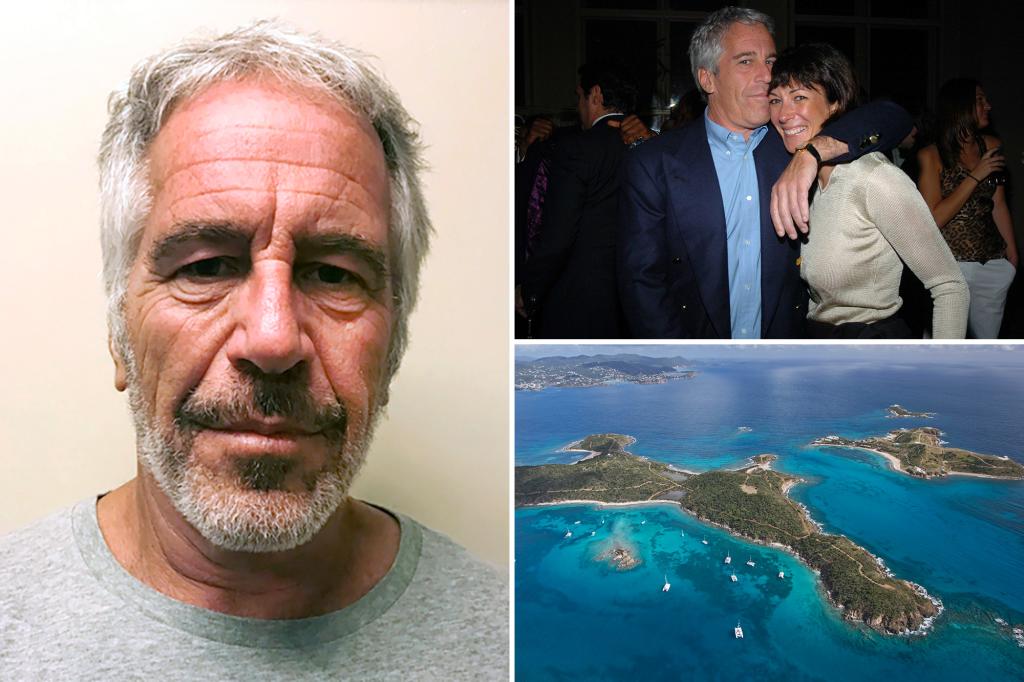The Unraveling Legacy of Jeffrey Epstein: A 2024 Retrospective
The specter of Jeffrey Epstein, the disgraced financier and convicted sex offender, continued to haunt the public consciousness in 2024, years after his death in a federal jail cell. A series of legal developments and revelations further exposed the extent of his alleged crimes and the network of powerful individuals connected to him. The release of previously sealed court documents, a candid memoir by former President Bill Clinton, a survivor’s harrowing account of abuse, and the unsealing of grand jury records painted a disturbing picture of Epstein’s predatory behavior and the systemic failures that allowed it to flourish.
One of the most significant developments was the court-ordered unsealing of nearly 200 names from a civil lawsuit against Ghislaine Maxwell, Epstein’s former girlfriend and alleged accomplice. This "Epstein list," released in waves throughout January, included a mix of high-profile figures from politics, business, entertainment, and academia. While many on the list have not been accused of any wrongdoing, their association with Epstein fueled public speculation and further tarnished his already sullied reputation. The inclusion of former President Bill Clinton, while not unexpected given his known connections to Epstein, underscored the financier’s ability to cultivate relationships with powerful individuals. Clinton’s decision not to seek to keep his name sealed, coupled with his denial of any close personal relationship with Epstein, added another layer of complexity to the unfolding narrative.
Former President Clinton’s memoir, "Citizen," offered his perspective on his relationship with Epstein, claiming their interactions were limited to discussions of politics and economics. He emphatically denied ever visiting Epstein’s notorious private island, Little St. James, and expressed regret over their association. While Clinton maintained his innocence of any wrongdoing, the unsealed deposition of Epstein accuser Johanna Sjoberg, which contained allegations of Epstein boasting about Clinton’s preference for young girls, cast a shadow over the former president’s account. The conflicting narratives highlighted the ongoing struggle to fully understand the nature and extent of Epstein’s relationships with powerful figures.
Beyond the high-profile names and political intrigue, the human cost of Epstein’s alleged crimes continued to emerge in 2024. Lisa Phillips, a former model and talent scout, bravely shared her story of alleged abuse at the hands of Epstein on his private island. Her account detailed a manipulative process of grooming and escalating abuse, characteristic of Epstein’s alleged modus operandi. Phillips’ experience, shared on a podcast dedicated to raising awareness about human trafficking, served as a stark reminder of the vulnerability of young women in the modeling industry and the insidious nature of predatory behavior. Her story also highlighted the isolation and powerlessness that many of Epstein’s alleged victims experienced.
The release of grand jury records from a 2000s Florida investigation into Epstein provided a chilling glimpse into the early stages of his alleged crimes and the systemic failures that allowed him to escape serious consequences. The transcripts, made public after Florida Governor Ron DeSantis signed a new anti-trafficking law, revealed disturbing details of Epstein’s alleged abuse of underage girls. The testimony of a 16-year-old girl, who described being coerced into giving Epstein a massage and subsequently subjected to sexual abuse, painted a picture of a calculated predator exploiting vulnerable young women. The grand jury records underscored the gravity of Epstein’s alleged crimes and the inadequacy of the initial legal response, which resulted in a lenient plea deal that allowed him to avoid significant prison time.
The revelations of 2024 further cemented Jeffrey Epstein’s legacy as a symbol of powerful impunity and the devastating impact of sexual abuse. The ongoing legal proceedings, coupled with the personal accounts of survivors, continued to shed light on the complex web of relationships and systemic failures that enabled his alleged crimes. The release of the "Epstein list," former President Clinton’s memoir, Lisa Phillips’ brave testimony, and the unsealing of grand jury records all contributed to a more complete understanding of the scope of Epstein’s alleged predatory behavior and the enduring consequences for his victims.
The ongoing efforts to uncover the truth about Epstein’s crimes and hold those involved accountable serve as a testament to the resilience of survivors and the importance of pursuing justice, even in the face of powerful opposition. The events of 2024 demonstrated that the pursuit of justice for Epstein’s victims is far from over and that the reckoning with his crimes and their wider implications will continue to unfold in the years to come. The legacy of Jeffrey Epstein serves as a stark reminder of the need for greater vigilance and accountability in protecting vulnerable individuals from exploitation and abuse.



